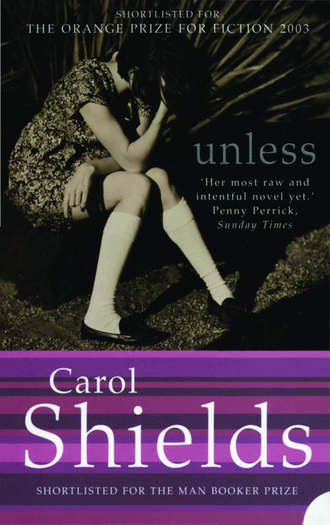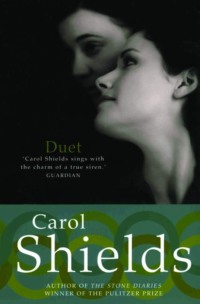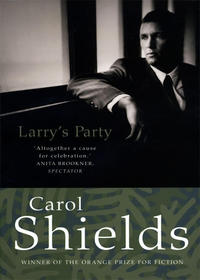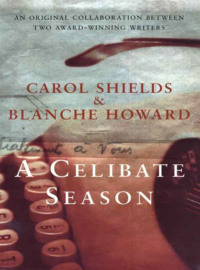
Полная версия
Unless
They are great friends, Tessa and Cheryl—colleagues—and they have the good sense to be proud of the generation-stretching bond they’ve devised. Snobbishness of a particular kind attends them, a case of old-style womanhood kissing up with the new—they’ve actually done it. It’s almost like love. They’re each so proud of the other, and like to express this reciprocal pride aloud. She knows exactly where to find things. Well, she’s the best there is when it comes to following up on the Internet. What they share is their dominion over this granite building, whose brown stones hint at the colour of the earth beneath, that good rich agricultural land so wisely set aside for the public good. Another serious budget cut, though, and this place will be a tea room-slash-gifte shoppe.
Tessa and Cheryl are united in their passion for books, books like Ford-Helpern’s, which they are happy enough to provide, but especially novels, novels that describe the unwrittenness of unremarkable men and women. Their instinct is to keep these books flowing toward those who have lost touch with the “real world.” I’m their number-one project these days. “Here’s the new Atwood,” Tessa tells me today, patting the book’s cover. “It came in yesterday, and I moved your name to the top of the waiting list.”
“It’s been nominated for the Booker, you know.”
“Thanks,” I say in an immaculate tone, “both of you.”
They beam. And wait for more.
“How’s Norah? Any news? Is she coming home soon?”
No, she will not be home soon. That is perfectly clear. “I’m not sure when she’ll be home. Nothing much has happened.”
The fact is, Tom and I don’t use the library nearly as much as we used to. Tom orders his books—mostly about trilobites—through Amazon.com, and I tend to pick up what I need in Toronto.
“How’s she doing?” From Cheryl.
“Reasonably well. As far as we know.”
Ah! They exchange glances. Tessa, who has some of the rough, shaggy manners of our own Pet, reaches awkwardly over the counter and embraces me. “She’ll get through this nonsense.” She fixes me with a snagging look of determination and strength, that “carry on” look that brings tears to my throat.
It was Tessa who alerted us to Norah’s whereabouts last April. We hadn’t heard from her for over a week. Tom thought Norah had quarrelled with her boyfriend, but I knew better. When we tried to phone we could never get through. Her last visit home at the end of March had been deeply disturbing. I thought several times of getting in touch with the university, but the idea seemed ridiculous, parents checking up on a grown daughter. We were worried, worried sick. Springtime depression. The thought of suicide. Only recently a Muslim woman had set herself on fire in Toronto. I read something about it in the paper. Then Tessa happened to go into the city to visit her elderly mother, and there she caught a glimpse of Norah when she came up out of the subway. Norah, sitting on the sidewalk, begging.
“Norah?” Tessa said.
Norah looked up. Of course she recognized Tessa at once, but she said nothing. She firmed her grip on the little square of cardboard and thrust it at Tessa. It must have been a cool day, Tessa remembers, because Norah was wearing a pair of old gardening gloves, far too big for her small hands.
“Norah,” softly, “do your parents know you’re here?”
Norah shook her head.
Around the corner, Tessa opened her bag, fished out her cell phone, and reached me in Orangetown. Luckily, Tom was home. We got straight into the car and drove to Toronto. All the way, my chest was convulsed with pain. The air we breathed was shaking like a great sail.
I’m supposed to be Reta Winters, that sunny woman, but something happened when her back was turned. Reta’s dropped a ball in the schoolyard, she’s lost that curved, clean shell she was carrying home from the beach. And these two women—Tessa and Cheryl—know what I am, standing here juggling my cascading images of before and after, all my living perfume washed off because my oldest daughter has gone off to live a life of virtue. Her self-renunciation has even made her choose a corner of Toronto where the pickings are slim. I had to explain the situation to my other daughters, how their sister Norah was in pursuit of goodness. I remember that I sketched in the picture fast, using the simplest and shortest words I could find, as though a summary would take the sting and strangeness away. Yes, a life of goodness, that’s what she’s chosen.
They’ve been expecting me at the library; I always phone ahead. They have six books stacked on the counter, The Goodness Gap on top, then the Atwood, then a biography and a couple of slender new mysteries for my mother-in-law, Lois, and a copy of The Waves for Christine, who has just discovered Virginia Woolf. These books have been carefully chosen. Just the right degree of narrative packing for me, nothing too dark or New Agey; literary novels, but not postmodernly so; no “poetic” novels, please; no insulting trash. An exotic setting is always nice. But nothing about rich people or people who go to lunch—that is, people who know “where” to go to lunch, those smart-edged professionals who “want a life,” as if they weren’t getting one. Nothing hip. No family sagas, no male bonding with nature stuff. No horses. No poetry or short stories, not for the moment; they don’t work.
Cheryl slides the little tower of books toward me slowly, as though they were gathered treasure aboard the deck of a schooner. Their bright new covers gleam in plastic library coats, catching warm bars of light from overhead. I dig into my bag for my library card, grateful.
The reading room today is, as usual, lightly scattered with housewives and seniors, a few students, several of whom I recognize, and one or two strangers. These people move through the stacks or sit quietly at the old oak tables, turning the pages of reference books, poring over newspapers, glancing up when the door opens or closes, looking around and observing the quiet activity, and then retreating to print. This might be a private club, with everyone so relaxed and polite and obeying the rules.
No one actually stares, but they know who I am. I’m Reta Winters, the doctor’s wife (that fine man!), the mother of three daughters, the writer. I live five miles out of town, in what used to be the countryside but is now becoming more and more a part of Orangetown, almost a suburb, if a town of five thousand can have a suburb. In our big old house, it could be said, we live the life we long ago chose: abundant, bustling, but with peaceful intervals, islands of furniture, books, music, soft cushions to lean into, food in the fridge, more in the freezer. I work as a writer and translator (French into English). And I am the mother of Norah Winters, such a sad case. They remember seeing her around town, a striking girl with fine features, tall like Tom, sometimes riding her bike up Main Street or sitting with her friends in front of the high school, that long straight blonde hair of hers, those strong slender legs testifying to the loose agility of the young. She had a smile that cut like a crescent through her whole body. She went away to university in Toronto, where she had a boyfriend, then she went missing for a few days last spring, then she turned up on a Toronto street corner. The word’s got around.
They nod in my direction or else they utter greetings under their breath. “Afternoon.” Blessings that I return with a congenial dip of my head as though I were sniffing a nosegay. I’m braced by people’s steady repeatable gifts of acknowledgement, and am reminded of what I seem to be waiting for, what all of us wait for: that moment of grace or surprise that has left us but will certainly return. It always does. I believe this, more or less.
In half an hour—I will be gone by then—Cheryl will ring a little bell and move from table to table, announcing in her tender girl’s voice that the library will be closed in five minutes. She will say this with a plunge of apology; she is genuinely sorry to break through the thread of her clients’ thoughts and regretful about disturbing the concentration of perception and silence that the library has promised each of its visitors and that has accumulated during the long sleepy afternoon. There is no longer enough money to keep the library open on weekday evenings. This is not Cheryl’s fault, but she feels sorry about the situation and hopes that they will understand.
I glance around at my fellow citizens as I deposit the books in my sack, and I feel a surge of love for the arbitrariness of our arrangements, that we should be assembled here together in this particular compartment of time, sharing public space, at one with each other in our need for retreat and for the printed word. There’s Mrs. Greenaway, with her impossibly narrow nose bridge, smiling perpetually, an intelligent woman with no place to stow her brand of originality. Mr. Atkinson, retired teacher, his tie sunk into the fat of his neck, the Britannica opened on the table before him, to a map of some sort. There’s a bearded man whose name I don’t know but who seems to be scribbling a novel or a memoir into a series of spiral notebooks. There’s Hal (Swiftfoot) Scott, who pumps gas and plays hockey, or at least he did before he got caught in a drug bust last year. He’s reading Maclean’s, probably the sports section.
This is a familiar yet unique scene. The precise pattern will occur only once—us, here, this moment engraved in a layer of memory—a thought that stirs me to wonderment.
Such feelings come easily to me these days, and I know enough to distrust myself with these little ironic turnings, these fake jewels. The string section comes on somewhere behind my eyes. There is a sense of buoyancy, as though I’m being carried along on a tidal wave of sensation, borne forward. Precious and precarious, a bending, subtle wand of desire making itself known. Followed by a tightening of the throat, moistening of the eyes, awe for the beauty of ongoing life. Et cetera. Oh, God. This is insane, these errands, these visions, my stepping into cantilevered space and allowing myself to be tipped from skepticism to belief. Twin babies in snowsuits. People hugging at the airport. Pet with his golden fur and brown-socketed eyes sniffing endearingly into the corners of the house, knowing something is wrong, something is missing. Boo hoo.
“She is such a lachrymose woman.” I once heard a man say that disdainfully about his sister; he might have been talking about me in my present state. But it’s just me, Reta Winters, pushing against what has become an observant loyalty to my habit of sadness. Stupid or shrewd; one or the other. It’s only temporary, a warped sense of rejoicing, une déformation—so says Danielle Westerman—but it’s somehow true, too. For here we are, together in this room at the public library with its old, worn wooden floors, held inside a little tick-tock of time.
And each of us has a life we’ll soon be going back to. Dinners will be waiting for us; what an odd and consoling thought. Elaborate full-course affairs or plates of Kraft Dinner or Greek salad from a Safeway tub. I’ve got two chickens roasting in the oven right now, enough for leftovers tomorrow; a potato casserole that just needs heating up, and the makings of a salad. My, my, such a good woman, so organized, too.
Enough of that!
Yes, I must get home. A long day, yes. Rain, rain. The weather forecast. Goodbye. My umbrella, good heavens, I almost forgot. Yes, busy, busy. Parked just outside. Don’t really need. Still have the dog to walk. Yes, I will, of course I will. Thank you again, thank you both. You must be glad to see the end of a long day.
I want, I want, I want.
I don’t actually say these last words; I just bump along on their short, stubbed feet, their little dead declarative syllables—while buttoning up my coat and making my way home.
Nevertheless
WE LIVE ON A STEEP HILL. This is rolling country on the whole, so our rocky perch is a geological anomaly, chosen no doubt because it offered a firm foundation as well as a view. The house is a hundred years old, a simple brick Ontario farmhouse that has been much added on to by its several previous inhabitants, and by us. It has weathered into durable authenticity, withstanding the scorchings and freezings of the Ontario climate.
People often ask me—I don’t know why—how many rooms we have, and each time this happens I go blank. This is something I should know, but don’t. It depends on what you call a room. Is a vestibule a room? Ours has a bright Indian rug, a bench, an engraving on the wall, a number of hooks for coats. The large square entrance hall has a Swedish wood-burning stove on the left-hand side, which we installed during the bitter winter of 1986 and which provides the kind of good, dry radiant heat required in our climate. And there’s space in this “hall” for several easy chairs, a telephone table, the oak floor laid with a soft, faded kilim, and in the corner a big blocky desk that Tom uses for personal correspondence—and yet this is not really a room. A hall is not a room; any real estate agent will tell you that. The dining room, off to the right, has a tiny sunroom adjoining it, which is more a cupboard than a room, a wicker settee, a tiny table, some hanging plants, a large squashy ottoman, a sense of opalescence and purity. The living room to the left has a deep bay window, almost a room in itself. Everything’s green and white or shades of teal, clear and, at least to my eye, luminous. There’s a screened porch off the den, and above it another screened porch, what used to be called a sleeping porch. The room where I work is the old box room in the attic, also not officially a room, though the new skylight and cunningly suspended bookshelves make it feel like one. My office is what I call this space, or else my cubby—or, most often, the box room. My life as a writer and translator is my back story, as they say in the movie business; my front story is that I live in this house on a hill with Tom and our girls and our seven-year-old golden retriever, Pet.
Each of our three daughters has a room of her own, Natalie in the south room and Christine in what we call the raspberry room, not because of the colour of the walls but because her window overlooks our flourishing raspberry patch. Norah, the eldest, has her bedroom at the end of the hall (she is not home at the moment, hasn’t been for months, in fact). The sweetest smell hovers in this room, wafting from the tulip-printed duvet or the warm white linen curtains at the windows. Tom and I have the north bedroom, which could really be called two rooms because of the little L-shaped anteroom off the end where Tom keeps his precious trilobite collection in a locked glass case. When the girls were babies they slept here in a crib, to be close to us at night. That crib is now in the basement, occupying a corner of another non-room, a half-finished space with rather sooty knotty-pine walls and painted cement floor, built probably in the late fifties by the McGinn family.
The McGinn House; that’s what our place is still called locally, though three or four tenants intervened between them and us, short-term renters who left scarcely any impression of themselves and, in fact, let the house go halfway to ruin.
The McGinns were the first non-farming family to live here. Mr. McGinn ran a second-hand furniture store in town, not very successfully by all accounts. It was during his tenure that the farm acreage was sold off, leaving just four acres for us, woods mostly, maple, sycamore, and a few ancient oaks, and a small apple orchard. I read recently that an English oak takes three hundred years to grow, then lives for three hundred years, then spends three hundred years dying. This thought gave me pause, or at least a lash of sentimental static that was not quite elaborated into a thought: the wonder that living oaken tissue could be so patient and obedient to its built-in triadic rhythm, responding to the tiny distortions of its oversized cells. Did it matter at which moment an oak heart decided to wither and call it a day?
I often think about the McGinn family. I never met them, but they linger nevertheless. They left traces. I’ve asked Lois about the family, but she had little to do with them, not being one for neighbourliness. She is a great believer in “not imposing,” and at that time Tom was a very small boy, too young to play with the McGinn children. The two houses were well separated in those days by ghostly old lilacs and springy untrained stands of spirea.
When we moved in, the half-finished basement room had a freestanding bar at one end with a dark slate top, and we can only think they left it behind because it was too heavy for them to move, not worth the effort. In the deep drawer behind the bar we found a single large cocoa bean, waxed and beautiful and smelling exotically of oily dust. We kept it for years, though now it seems to have vanished. There was also an ancient cardboard box of Dance Dust. If you sprinkled a little on the floor, it made it slippery, just right for a sliding foxtrot. The McGinns, mum and dad, must have had parties, we think—other couples over to dance to records on the wind-up Victrola, something else they left behind. People have probably been happy in this house.
The family had several children—teenagers—and I sometimes wonder if these children were affected by the political tumult of the early sixties, if they got themselves into trouble and worried their parents. They would be approaching late middle age now, these children, keeping an eye on their eroding health and their aging marriages and the doings of their grandchildren, and it seems entirely likely to me that their thoughts must turn occasionally to the house where they grew up. Probably they recall the immense built-in gun cupboard (tongue-and-groove) in the upstairs hall, for which we have never had any use. They may, when they get together for family reunions, reminisce about the tiny crawl space under the porch, which is entered by a concealed door on the wall and which, for my children, became a secret clubhouse.
Someone in the McGinn family left a sealed envelope behind a bathroom radiator, one of those old-fashioned, many-ribbed hot water affairs with ornamental spines. I discovered the envelope when I was painting the room. Reaching down behind the radiator with my paintbrush, I encountered something papery. I had to be careful to dislodge it in one piece. I put down my brush and looked around for a wire coat hanger that I could poke through the grooves of the radiator. The envelope, intact and still sealed after all this time and only lightly smudged with dirt, had the name “Mrs. Lyle McGinn” written across it. Blue ink, faded. It felt crisp in my hands, even after lying hidden all those dateless winters with the furnace clanking off and on and sending heat through the pipes and baking and rebaking it. Should I open it? I wondered. Yes, of course I would open it. I only pretend to have moral scruples about such things. Just touching the envelope brought on a rush of sweet religious melancholy. Yes, I most certainly would open it.
The thought came to me that it might be a suicide note. Or a child’s admonishing report card. Or a confession of some sort. I am so sorry to tell you that I have fallen in love with… The neighbours in back of us, when we first moved in, had hinted at tragedy in the McGinn family, an event of some kind that precipitated the move, years of happiness overcome by sorrow. (My mother-in-law, who hadn’t liked Mrs. McGinn, had nothing to contribute in the way of information.) I hadn’t paid attention to these rumours, but I also reasoned that any family who surrendered such a house must have had serious cause.
What I found inside the ancient envelope was a simple, rather cheap invitation. A baby shower to be held March 13, 1961. (I would have been four years old.) Pink and blue flowers dangled on their short stems from a rustic cradle suspended from a tree branch. “Please bring a small toy or article of clothing,” the invitation read in svelte, arched handwriting, the same handwriting as on the envelope, “not exceeding $3. Please also bring a ‘mother’s hint’ for Georgia.”
What happened to the pregnant Georgia who was to be honoured at the party? What happened to her baby when it was born, and was the shower a happy success? These questions opened up for me like rooms along a dim corridor, and these rooms possess doorways to other rooms. I remembered Danielle Westerman asking me once what a shower was; as a transplanted Frenchwoman, a woman in her mid-eighties, she had trouble understanding the concept. But I’ve been to dozens of such events and find it not at all difficult to imagine an early-sixties living room ringing with high-pitched women’s laughter that never seems to let up, though always, beneath it, there is the deeper sound of one particular woman hooting. This person would be famous among her acquaintances for her much-praised, infectious laugh. She, with her boldly printed home-sewn shift dress—I imagine a geometric design, black against red—would be the sort of person who enlivened any gathering and who was always welcome. Mrs. McGinn, on the other hand, would have a tiny, whispery laugh, and would often draw her hand up against her mouth. Was it Mr. McGinn who owned the rifle collection housed in the specially built cupboard, and did one of those guns go off accidentally? Was it he who attempted to insulate the attic and made a terrible botch of it? How did Mrs. McGinn—I’ve never discovered her first name, and Lois was no help here, but I speculate it might be Lillian or Dorothy or Ruth, something like that—occupy herself, and was it she who decided to install the green steel kitchen sink with its green enamel basin? Today the sink has reached a kind of antique status, too much a curiosity to part with, and, in any case, it still functions perfectly. I can imagine Lillian/ Dorothy/Ruth standing at this sink, cutting wax beans into one-inch pieces and covering them with water, sighing and looking at the clock. Almost suppertime. The clock—postwar plastic—would have been shaped like a teapot or a frog. She is a woman of about my size and age, a medium frame, still slim, but widening at the hips. Middle forties with a lipsticked pout. Some essence has deserted her. A bodily evaporation has left her with nothing but hard, direct questions aimed in the region of her chest, and no one would ever suspect that she might be capable of rising to the upper ether of desire, wanting, wishing.
I love this house. Tom and I—we’ve been together for twenty-six years, which is the same as being married—moved here in 1980, next door to the red-shingled house he grew up in and where his mother still lives, a seventy-year-old widow, rather gaunt these days, and increasingly silent. Tom, like his father before him, has a family practice in Orangetown, a quick ten minutes away, but he spends at least a third of his time working on trilobite research, his hobby, his avocation, he would tell you in a kind of winking way so that you understand trilobites are his real work.
What’s confusing to people is that I’ve taken his name. I grew up as Reta Summers and when I was eighteen with long straight brown hair down to my waist and enrolled in French studies, I met a medical student named Tom Winters, and so we had on our hands a “situation.” We could become a standing joke or else one of us could change seasons. At the time this name business seemed an enormous problem, and it’s only recently that I’ve been able to reel off a fast and funny account of the dilemma and how we solved it. I went to court and signed some papers; that was it, but you would have thought at the time that I’d sacrificed body parts. (I grew up, after all, listening to Helen Reddy singing “I Am Woman.”) We are, both of us, soixante-huitards in spirit, and I suppose we will remain so all our lives. In truth, I was only twelve years old in 1968, but the potential of rebellion had spiked me even then, what it could be used for or stored against and how we have to live inside the history we’re given, but must resist, like radicals, being made into mere creatures of a mere era.








